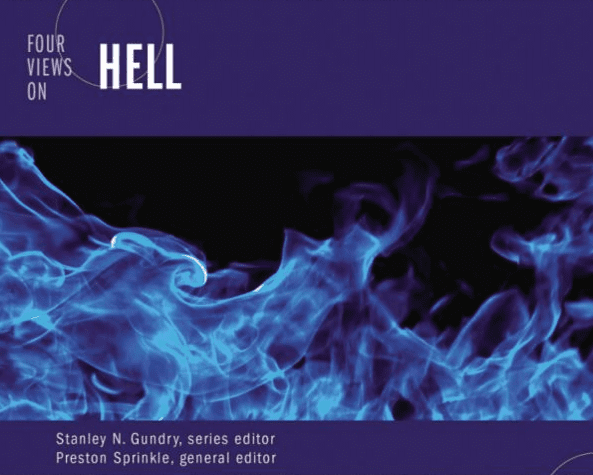 IS THE LAKE OF FIRE TORTURE? by Josh Butler, author of the just-out and excellent book, The Skeletons in God’s Closet. More about Josh below.
IS THE LAKE OF FIRE TORTURE? by Josh Butler, author of the just-out and excellent book, The Skeletons in God’s Closet. More about Josh below.
Many a street preacher has used the “lake of fire,” an image in Revelation, to depict God as a sadistic torturer who likes to roast unrepentant rebels like kalua pigs over an eternal spit once the stopwatch runs out.
But is torture really the point of this image? I would like to suggest, in contrast, that the lake of fire is an apocalyptic symbol for the smoldering rubble of Babylon. It depicts God’s judgment on empire, not the torture of individuals.
Let’s take a quick look at why this is a better interpretation.
Burning Down Babylon
The lake of fire shows up in Revelation, a book filled with apocalyptic symbols. There is a danger in interpreting these symbols too literally. To say Jesus is a lamb does not mean Jesus is on all fours, chewing grass and saying, “Baa!” When a beast rises out of the ocean, we do not expect Godzilla to come walking out of the Atlantic to trample down our cities.
If we did interpret these images this way, John (the author of Revelation) would probably scratch his head and say, “How did you get that?” We’d be missing the point.
We have to ask what these symbols represent. Jesus’ identity as Lamb draws upon the Old Testament history of sacrifice to proclaim that his death atones for the sin of the world. Beasts are an Old Testament symbol for empire, depicting the Gentile powers that arise to rage against God’s world.
So what about the lake of fire?
A good first question to ask is: “What context does the symbol show up in?” And there is definitely a context. Just before the lake of fire steps onstage for its first appearance in Revelation 19, something dramatic has just happened: God has just judged Babylon with fire.
God is burning down Babylon. This is the immediate context for the symbol. God is judging an empire, not torturing individuals. This is structural judgment, not personal judgment.
Fallen! Fallen is Babylon the Great! . . .
for her sins are piled up to heaven
and God has remembered her crimes . . .
She will be consumed by fire,
for mighty is the Lord God who judges her. (Revelation 18:2, 5, 9)
God is waging holy war on the great city, not roasting people over a flame.
Babylon’s judgment has implications, of course, for individuals whose lives are invested in all that she represents. When the “kings and merchants” (political and economic leaders) see “the smoke of her burning,” they weep and wail, exclaiming,
“Was there ever a city like this great city?” (v.18)
But it is worth recognizing they are not in physical anguish because God is torturing them; they are in emotional anguish because their lives were invested in the empire. They are weeping and gnashing their teeth over the things they’ve lost in the fire.
God is not roasting them over a spit; they are crying because their toys have been taken away.
The Smoke Goes Up
The lake of fire’s backdrop in the Old Testament also confirms this interpretation. I explore a few significant passages that Revelation draws upon in my new book, but let’s look at one. When Sodom and Gomorrah are destroyed by fire from heaven, Abraham looks out upon the valley where the imperial powerhouses once were, and sees in their place, “dense smoke rising from the land, like smoke from a furnace.” (Genesis 19:28)
The great cities have been judged by fire, and all that is left is their smoldering remains.
Revelation alludes to this verse when Babylon is destroyed, saying, “the smoke from her goes up for ever and ever.” (Revelation 19:3) God judges the empire by fire and all that is left, like Sodom and Gomorrah, is smoke rising up from the land.
In the Sodom and Gomorrah allusion, the “smoke from a furnace” is obviously not an underground torture chamber; it is simply a picture of the city destroyed—the smoldering rubble of empire.
When Revelation says the smoke “goes up forever and ever,” it is similarly speaking to the finality of Babylon’s destruction. Sodom and Gomorrah were eventually rebuilt after the smoke faded and rubble was cleared away. But Babylon will never be rebuilt, because God has won his victory over her forever.
The smoke going up forever tells us this: when Babylon goes down, she ain’t getting back up.
Empire vs. Individual
So why is this helpful? There is all the difference in the world between judging an empire and torturing an individual. Consider, for example, when the Allied powers bombed Nazi Germany to bring an end to World War II. Most people today think this was the right thing to do. And this is a picture of an empire being judged by fire from above.
But let’s say after the war ended, convicted Nazi soldiers were lifted high on stakes with piles of wood set aflame beneath their feet, and slowly roasted in agony over the torment of the flames. What’s more, let’s say they were lifted just high enough to stay alive indefinitely. Most of us would think this a cruel and inhumane thing to do—a picture of torture.
Bombing an empire and torturing an individual are two very different things. The former is done to end a war; the latter for revenge.
Judging an empire has obvious implications for its citizens. If you’re a Nazi soldier, it’s bad news when Germany gets bombed. It’s bad news when your side gets defeated in the war. It’s bad news when all you’re left with is the smoldering rubble of your once-glorious civilization.
You will probably weep and wail, feeling an internal sense of anguish and torment at all you sought to build that has now been lost. But this is very different from your victorious enemy throwing you into a concentration camp and torturing you.
Conclusion
The lake of fire is an apocalyptic symbol for the smoldering rubble of Babylon. It does not depict the torture of individuals, but rather God’s judgment on empire. When God has destroyed Babylon by fire, all that is left is a smoking pile of stones. A steaming pillar of debris. A sunken puddle of flame.
The great city that once destroyed the world has been reduced to ashes.
The symbol does not promote a caricature of God as a sadistic torturer, but rather reclaims hope for a world torn apart under the destructive power of empire.
Joshua Ryan Butler is author of the new book, The Skeletons in God’s Closet: The Mercy of Hell, the Surprise of Judgment, the Hope of Holy War(Thomas Nelson), and a pastor at Imago Dei Community (Portland, OR).














